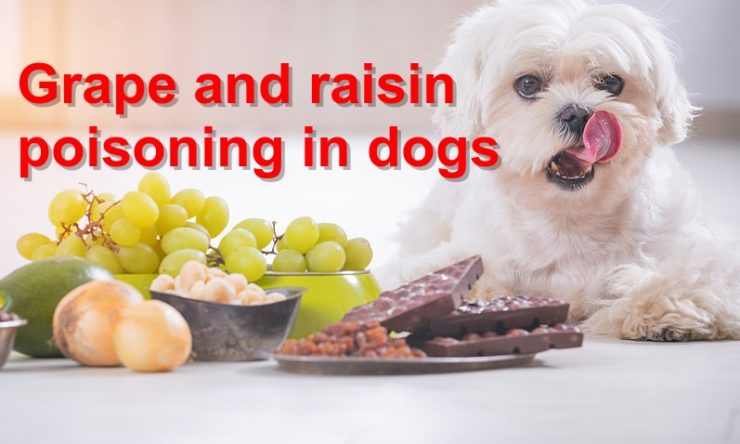Grape and Raisin Poisoning in Dogs
If you suspect your dog has ingested raisin or grapes, you should visit the vet immediately to avoid health problems. But if the dog ate the raisins just a few minutes ago, then there’s no need to visit the hospital as you can induce vomiting. Raising and grape poisoning in dogs can cause kidney failure and can be fatal if left untreated.
Common symptoms of Raisin and Grape poisoning in dogs
The most immediate symptom associated to grape or raisin toxicity is vomiting that happens in the first few minutes. Often, your dog might seem in good health for about 12 hours and then suffer from kidney failure. Some of the common symptoms of raisin and grape poisoning include dehydration, excessive thirst, loss of appetite, bad breath, weight loss, and breathing trouble.
What causes raising and grape poisoning in Dogs
Raisin poisoning is caused by the ingestion of excessive grapes or raisins. But how do you determine what amount is toxic or poisonous to your dog? Well, you dog’s weight can affect the level of toxicity. That said, it is important to avoid feeding your dog grapes or raisins and store them away safely away from their reach.
How to diagnose raisin or grape poisoning in Dogs
The vet will stabilize the dog before diagnosis. He will induce vomiting using apomorphine and thereafter wash the dog’s stomach by passing a sterile solution down the throat. Alternatively, the doctor might use activated charcoal to absorb toxins left in the dog’s stomach. There’s no specific test for grape or raisin poisoning, but the vet might find traces of raisins or grapes undigested in the dog’s throat or mouth.
What’s more, the vet has to perform thorough physical examination to monitor weight, reflexes, respirations, heart rate, and body temperature. Additionally, the vet will examine the abdomen carefully to check for stomach or kidney inflammation. Urinalysis and blood count are also done to help determine the severity of the kidney damage.
Treatment of grape and raisin poisoning in Dogs
Once the vet completes charcoal treatment and gastric lavage, he will hospitalize the dog to administer IV fluids. Observation is important for the first 24 hours to remove water and waste, thereby support proper function of the kidneys. More importantly, the vet provides basic monitoring and supportive care to prevent kidney damage.
Conclusion
If your pet has accidentally ingested grapes or raisin, you should visit the vet immediately to prevent kidney failure as this can be fatal. Try to induce vomiting if the dog has only ingested a small amount of raisin or grapes.
References: Wagwalking, Vca Hospitals, Petmd
Copyright: Local Value


